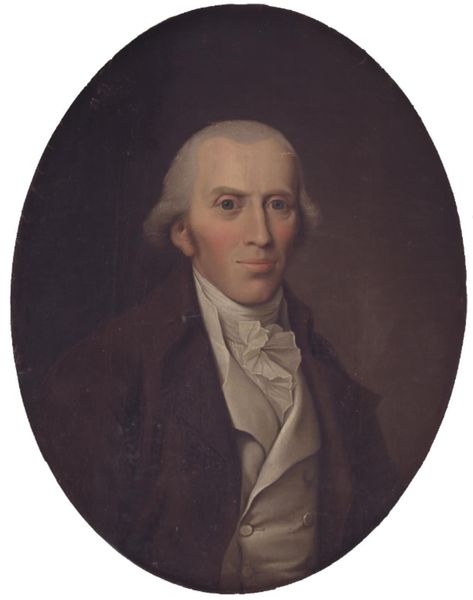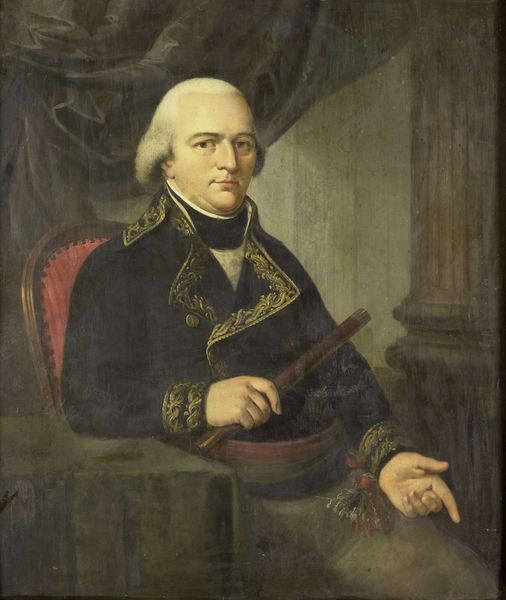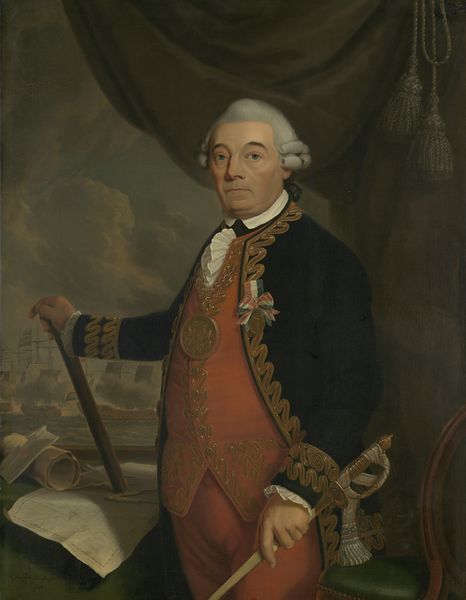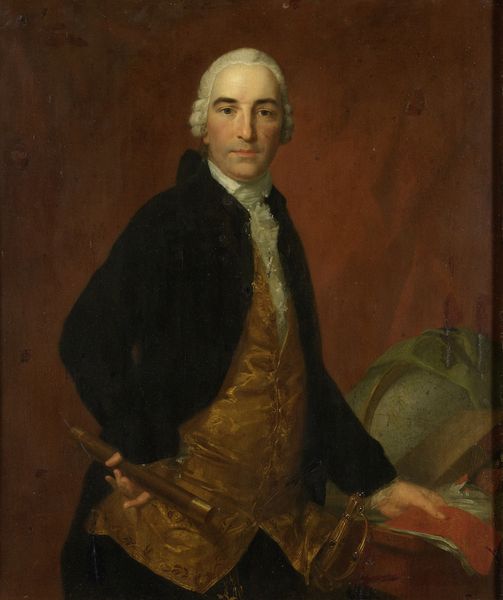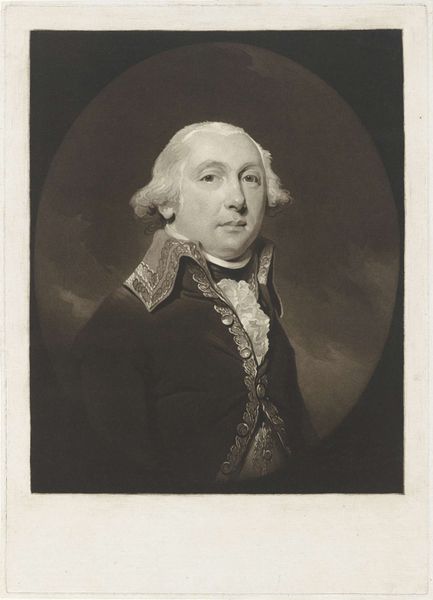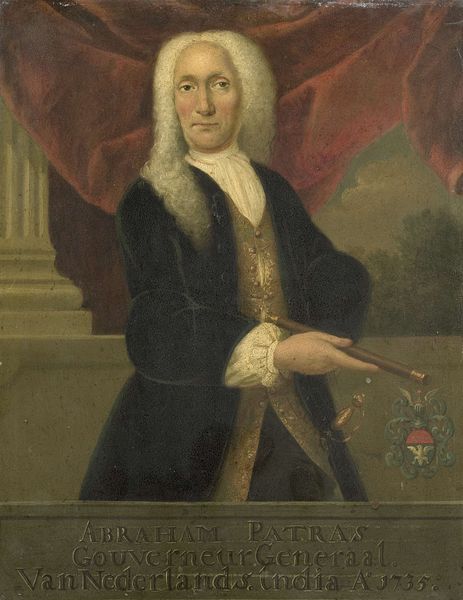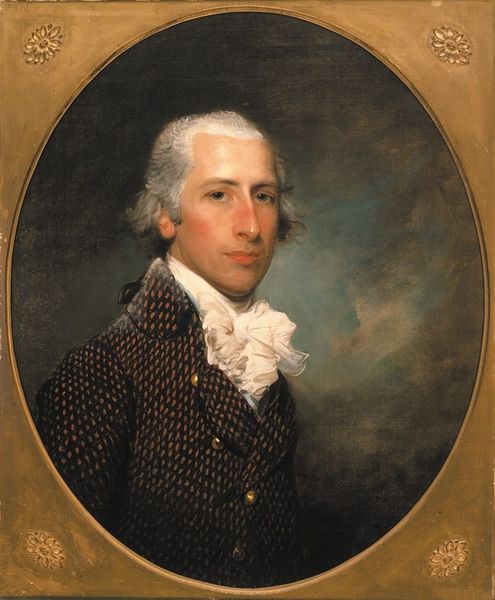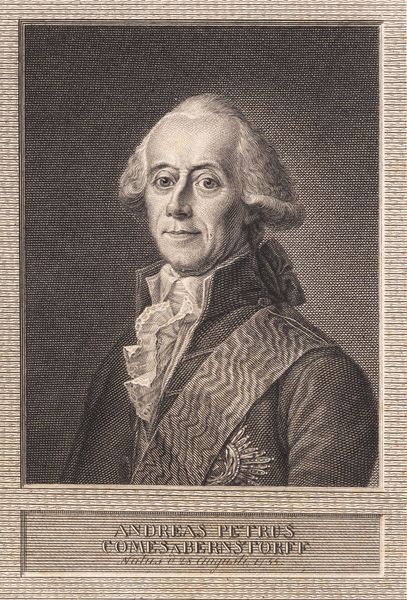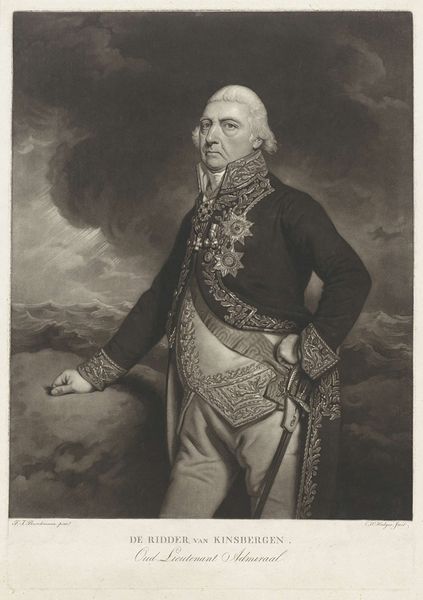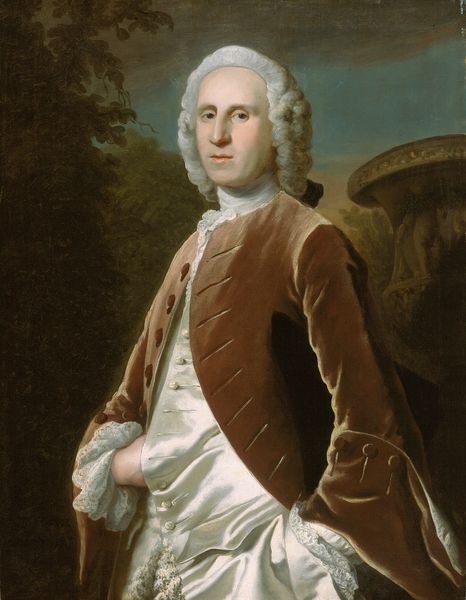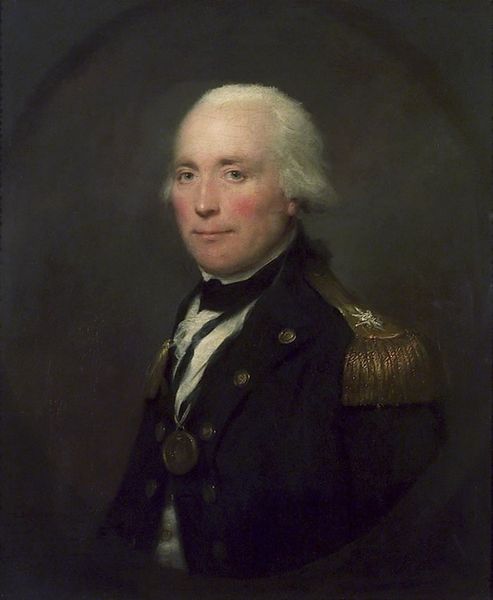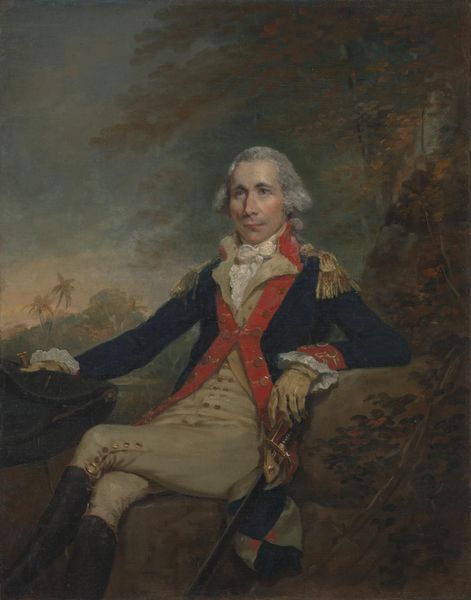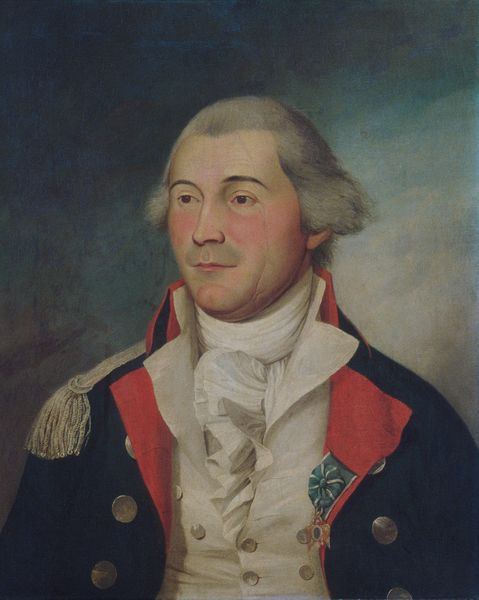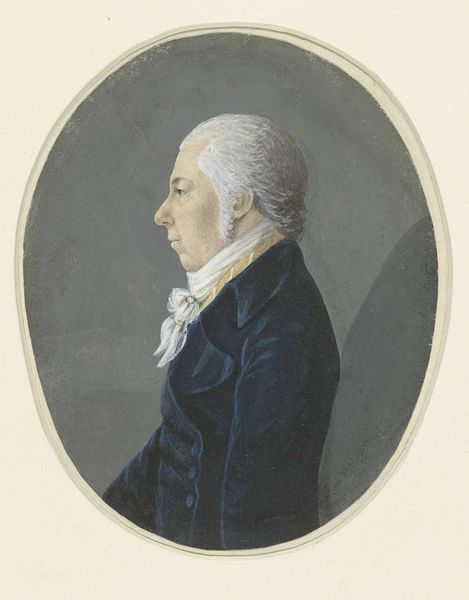
Portrait of Albertus Henricus Wiese, Governor-General of the Dutch East Indies 1805 - 1810
0:00
0:00
adriaandelelie
Rijksmuseum
painting, oil-paint
#
portrait
#
neoclacissism
#
painting
#
oil-paint
#
history-painting
Dimensions: height 105 cm, width 91 cm, depth 5.8 cm, weight 34 kg
Copyright: Rijks Museum: Open Domain
Adriaan de Lelie painted this portrait of Albertus Henricus Wiese, Governor-General of the Dutch East Indies, in the late 18th or early 19th century. Note the baton held confidently in his hand. The baton has ancient roots as a symbol of authority, tracing back to the scepters of classical rulers, such as those wielded by emperors and military commanders, representing power and control. This symbol is not static. Think of the transformation of the scepter into the conductor's baton. The baton, once a symbol of dictatorial power, has shifted to the conductor's baton, which embodies a more collaborative leadership and creativity. Symbols like these tap into the collective unconscious, evoking deep-seated associations with authority, governance, and leadership. Over time, the baton has resurfaced, evolved, and taken on new meanings in different historical contexts.
Comments
No comments
Be the first to comment and join the conversation on the ultimate creative platform.
